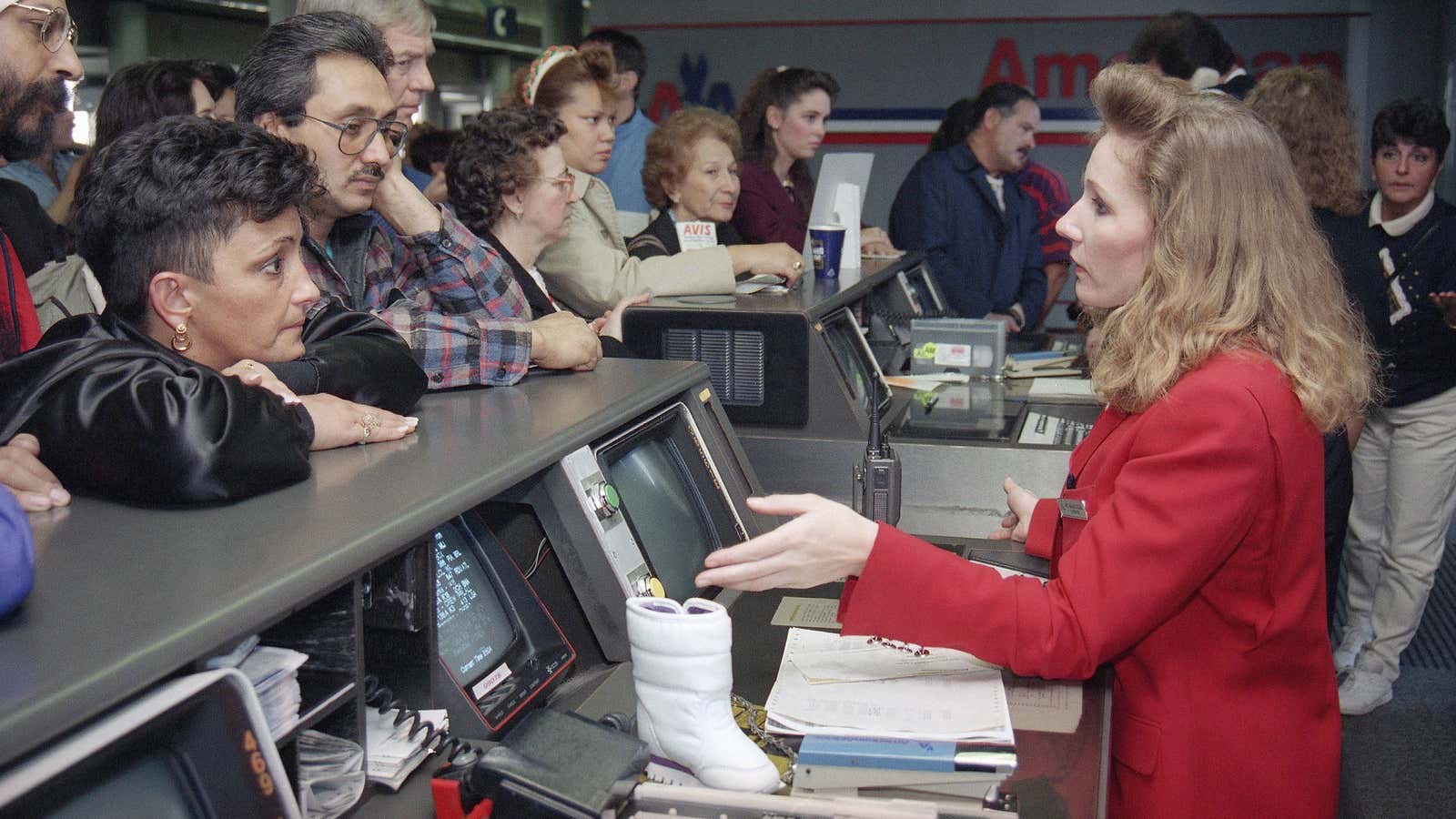Travelers know that airline employees wield enormous power at various stages of your journey—and they’re not afraid to use it. Ask anyone who has been bumped from an overbooked flight. But still, it seems outside of the job description for gate agents to decide which common styles of dress are somehow inappropriate for an airplane cabin.
The issue was spotlighted Sunday (March 26) when a woman in Denver tweeted that she saw a United Airlines employee refuse to let two teenagers wearing leggings board a flight.
United acknowledged its decision, chalking it up to a stricter dress code for passengers traveling with free company passes. Traveling on the company dime, passengers such as these girls are held to a stricter code of dress than others, United said, because they represent the airline. The company went on to say paying passengers are welcome to wear leggings aboard—with the emphasis on the paying part.
Its rationale did little to calm the public outrage.
Rival airline Delta followed up with a burn, telling the Twitterverse that passengers were welcome to wear leggings on board. But Delta also has a special-if vague-policy for flyers traveling with free passes (pdf). It says these passengers should be comfortable but that “doesn’t mean a sloppy appearance is acceptable.”
Airline employees, particularly flight attendants and gate agents, are a strange hybrid in the business world. They work for giant corporations that must follow strict government-imposed safety standards.
That means that if an employee deems a passenger is behaving strangely or appears to be intoxicated, they will happily deny them boarding. The person could potentially the harm crew or passengers, or they could make the plane late and cost the airline precious profits. Inside the cabin, flight attendants are not afraid to remove a passenger for the plane just for saying the wrong thing, which these days can be anything to do with politics. The crew’s power over who can stay or who can go applies to all passengers, even if you were once a United States senator.
When it comes to your clothing, airlines maintain broad powers if passengers are dressed inappropriately.
Buried in the fine print of what’s known as the conditions of carriage, or contract of carriage, is language that describes the right of the airline to boot a passenger for, among other things, clothing that could be offensive to other passengers, or even a bad odor.
The rules are vague and leave a lot of room for subjective judgement. (What if a passenger finds my Yankees cap offensive on a flight to Boston?) And airlines can often make the wrong calls. Beyond that, the rules may just be outmoded and unreasonable, especially given the flying experience of today. In any case, though, airline employees have the power to enforce them.
If you’re feeling down about it, try being a flight attendant
